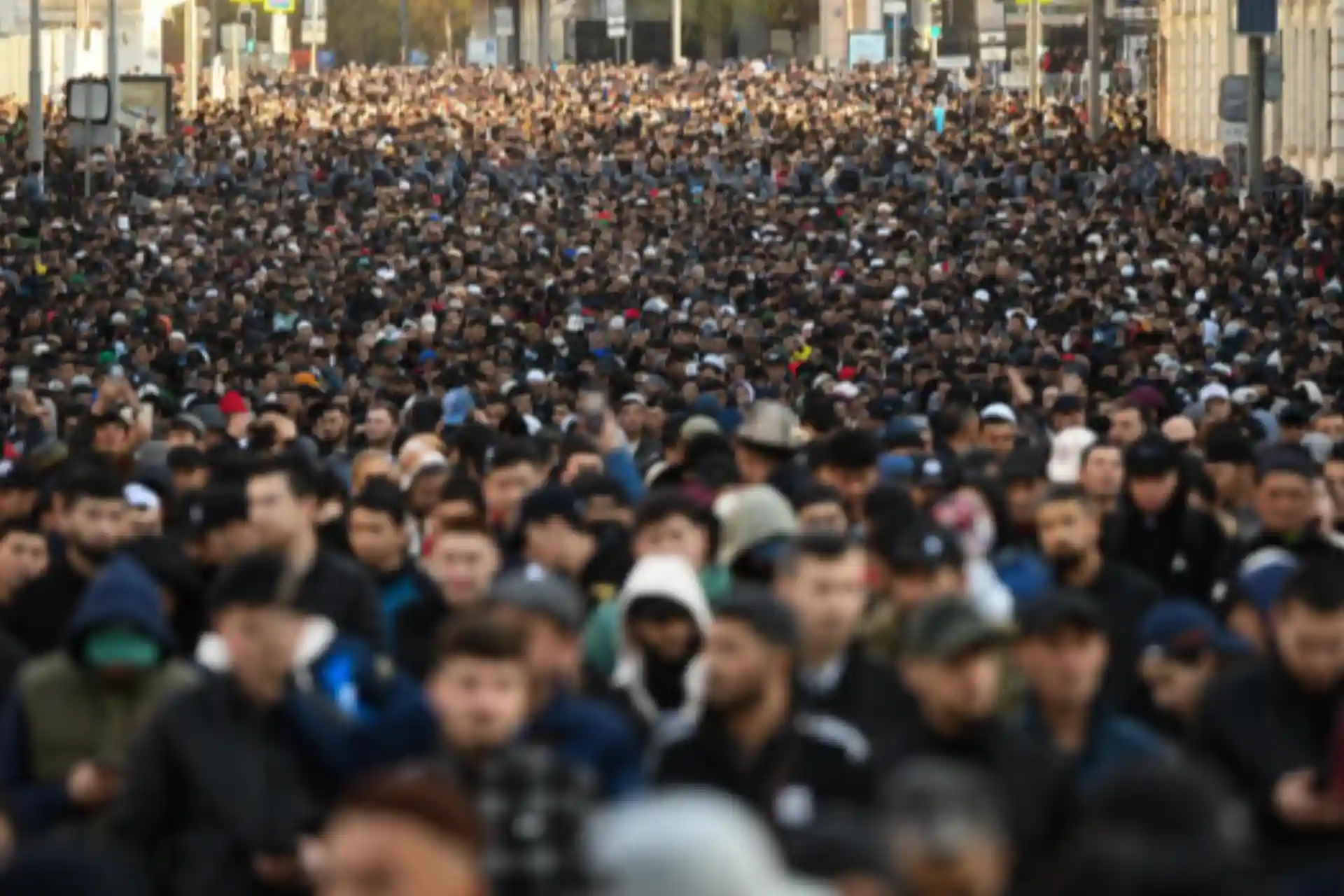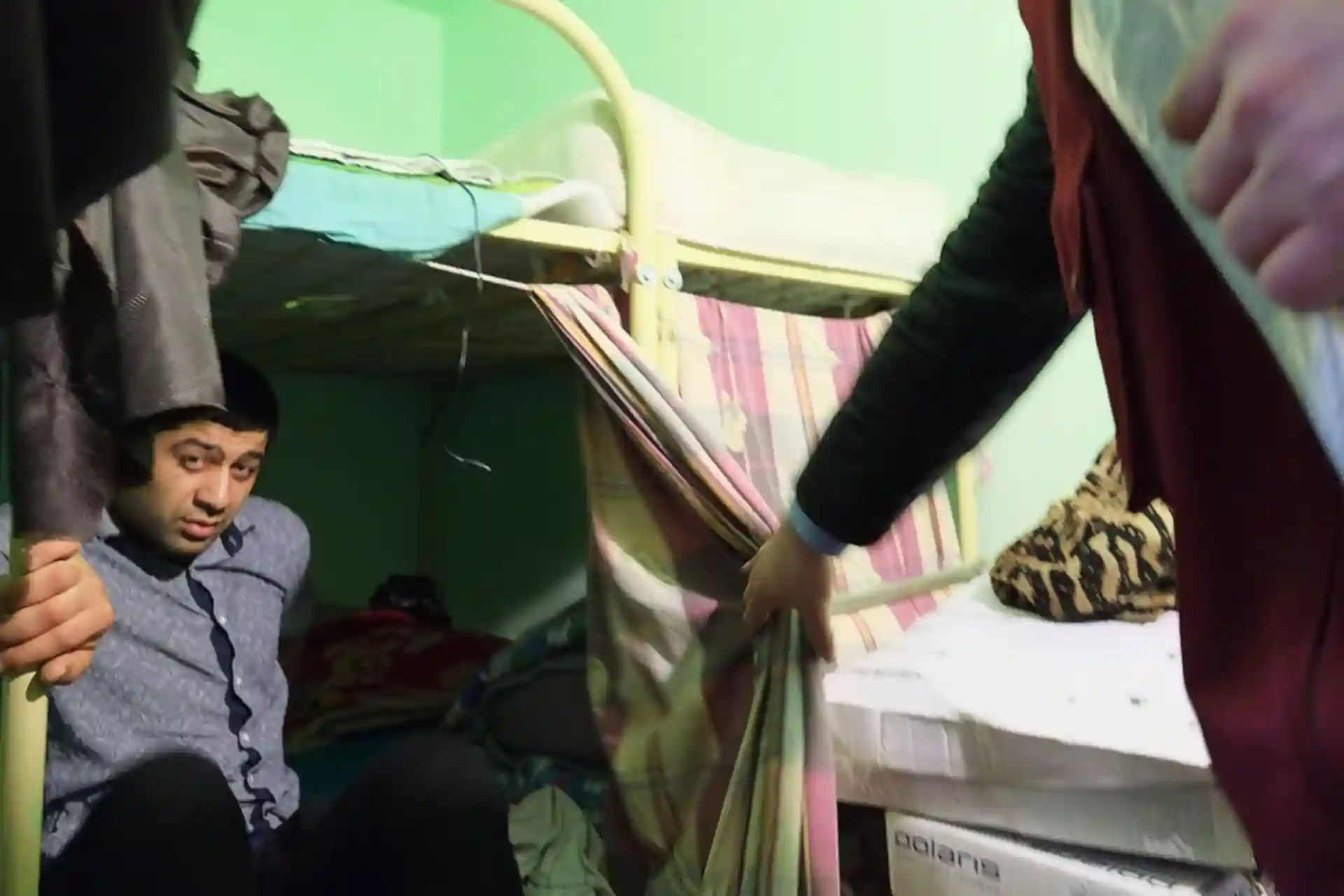Russia is a "migration stallion": we will bring from Africa, we will "dilute" Central Asians
Ukraine's war, sanctions, economic problems, social tensions and rising anti- immigrant sentiment. What influences the policy of attracting foreign labor to Russia? What is the purpose behind some of M's antiquated decisions?
Recently, Russian companies have significantly increased their activity in searching for workers from non-CIS countries. Almost everyone was surprised by the fact that labor reserves were attracted even from Africa! Moreover, this process started several years ago and is only developing rapidly.
Kenya is the leading country for sending migrant workers from the Black Continent, according to an analysis by NeadHunter, a major recruiting company, commissioned by RBK. Vacancies there for candidates willing to go to the far northern country increased by 3842 percent (39(!) times) in January-June of this year compared to the same period of 2023. It is followed by Zimbabwe (+1400%/15 times) and Cameroon (+829%/9 times). A sharp increase in the number of vacancies was also recorded in Zambia (+700%/8 times) and Algeria (+575%/7 times).
According to experts, Africans are mainly involved in construction and other sectors where low-skilled labor is required.
"African labor migrants occupy completely different positions in the labor market: some actually work in very low-skilled professions, for example, in construction, warehouses, agriculture," says Vsevolod Sviridov, an expert at the Center for African Studies of the National Research University of the Russian Higher School of Economics . But there are also those who work in "top management positions in large Russian companies." In addition, in 2024, Russian companies for the first time posted vacancies in Nepal, Barbados, Malawi, Sierra Leone, Gabon and the Central African Republic. Analysts say that in the first half of the year, the total number of vacancies in the listed countries reached about 300.
The director of the Institute of Demographic Research of the Russian Academy of Sciences, Marina Khramova, predicted earlier that the geography of migration to Russia could also include African countries. He also admitted that in the future, migrants from Southeast Asian countries such as Thailand or the Philippines may be attracted to the Russian labor market.
Migrants from Sri Lanka are already known. Moscow wants to attract the inhabitants of a remote island in the Indian Ocean to the production of textiles and food products, as well as to the agricultural industry in the south of the country. The organized recruitment offer includes a set of services - Russian language training, medical assistance, insurance, linguistic and legal support .
At the same time, despite all the problems caused by the war in Ukraine, the rise of xenophobic sentiments and the special attention of the security forces after the terrorist attack in " Krokus " , the flow from the Central Asian countries has not stopped. For example, Muhyiddin Kabiri, the leader of the Islamic Revival Party of Tajikistan, said that even for Tajiks, "Russia under sanctions, Russia at war" is better than "their homeland".
Referring to the information of the Russian Consulate General in Dushanbe, he noted that before the conflict in Ukraine, more than 400 Tajiks received Russian citizenship every day, and now this number has reached 600. According to the politician, " half of the country's working-age population is made up of migrants." Except for Russia, the labor market in no other country in the world can meet such a high demand.
"Clean" Russia from immigrants !
Against this background, observers note the extreme bias of the Russian security forces against migrants as a strange situation. First of all, we are talking about paying special attention to visitors from Central Asian countries.
In particular , police officers near Moscow were assigned the task of "cleansing" the region of migrants. This is exactly what the regional official of the Ministry of Internal Affairs said at the board meeting with the participation of the mayor of Dolgoprudny. The video of the lieutenant colonel's (unnamed) speech caused a storm of emotions on social media due to his use of, to put it mildly, strange vocabulary.
"Our immediate superior, Viktor Kuzmich Paukov, noted that this area is under the special control of the President and the Minister of Internal Affairs. A social task, as he [Head of the Regional Directorate of the Ministry of Internal Affairs] said, is to protect the Moscow region at the expense of foreigners is an " excuse " (!) for "inconsiderate" (!), said the policeman. It is interesting that none of those gathered objected to these words .
The call for "whitening" has already been mentioned in the other part of Russia. In Vladivostok, a 300- person detachment of ex-participants of the war in Ukraine was formed to " show a little about the places of foreigners ". Governor Oleg Kojemyako did not hide the fact that he plans to organize patrols of police assistants in other cities of Primorsky District. "Druzhinniks", called "Tigers" and promised to provide heavy ammunition like special forces, receive a salary of 70,000 rubles.
"Russkie obshchiny" has been working semi-officially in this format for several years. The press has written extensively about their efforts and their assistance to the security forces in closing down Muslim places of worship that have been declared illegal.
The issue of Muslim temples is of serious concern to Alexander Bastrykin, head of the Investigative Committee of the Russian Federation, in the context of migration from Uzbekistan, Tajikistan and Kyrgyzstan. Recently, he openly called the opening of Muslim "houses of worship" in Russia "physical occupation of territory", "not only ideology, but concrete objects." At the same time, he complained that other departments were preventing him from fighting against what he considered to be a different "culture". “They cancel and I order things to start over. Sometimes it lasts up to 3-4 times... You know how intense it is, " he said about the "tactics of struggle" with "prosecutors".
Nabiullina hits the bong
The press conference of Elvira Nabiullina, head of the Central Bank of the Russian Federation , after the meeting of the regulator's board of directors at the end of July this year , clarified the strangeness and ambiguity of the Russian migration policy. Speaking about the difficult situation in the country's economy, he once again emphasized that labor reserves and production capacities are "almost finished ".
According to him, the economy is now in a state of "overheating", the scale of which has reached a record level in at least the last 16 years.
In her speech at the State Duma last year, Nabiullina emphasized that the main problem for the Russian economy is the lack of personnel . The country's labor resources are almost fully operational, he said . About 70 percent of Russian enterprises, according to the Central Bank's surveys, noted that there is a lack of personnel.
"The main problem is not the lack of money, but the lack of manpower. By the way, we see this in business surveys. The main person that can be said about this is the companies themselves. First of all, companies talk not about the lack of credit, not about the lack of demand, but about the lack of labor force," said Nabiullina, clarifying that 13,000 companies were studied.
On the other hand, Kremlin spokesman Dmitry Peskov echoes Nabiullina's opinion . According to him, the birth rate in Russia is 1.4 or "catastrophic" for the future of the country. This is the lowest figure in 17 years, explained by the decrease in the number of young women and uncertainty in the labor market.
Is there any logic here ?
Even if someone thinks of "dilution" of personnel from Central Asia at the expense of those from Africa and Asia, the need for additional workers remains a decisive factor. Undoubtedly, the main factor influencing the migration policy of the Russian Federation is this - a strong need for people.
This situation is intensifying in the context of the war in Ukraine and Western sanctions. Because local specialists are not only being sent to the war fronts, but they also started to leave the country en masse after the mobilization was announced.
But in addition to the labor front, migrants are being attracted to the real front. Not only citizens of Central Asia, but also those from distant foreign countries. In particular, the officials of India and Sri Lanka raised the issue of returning their citizens from the war in Ukraine during high-level meetings in Moscow.
On the other hand, officials cannot ignore the pressure from far-right groups, which are growing due to serious anti-immigrant sentiment in society, the situation in and around Ukraine, and the confrontation with the West. After the start of the war with the neighboring country, the sublimation of militaristic and openly chauvinistic feelings continued for many years, and the situation worsened dramatically. But along with the West and the "Ukrainian Nazis", the masses are throwing their anger at those who are closer to them, more understandable and have formed their negative views for a long time - immigrants from Central Asia, Caucasians, Muslims.
This situation in the field of migration can be compared to a sheep. To a large extent, it develops on its own and is characterized by decisions of a completely opposite nature. It seems that the decision-makers in Russia consider this to be the only possible strategy under the current circumstances. Moreover, its effectiveness , at least in the short and medium term, cannot be denied .
Source: Yeni Şafak



